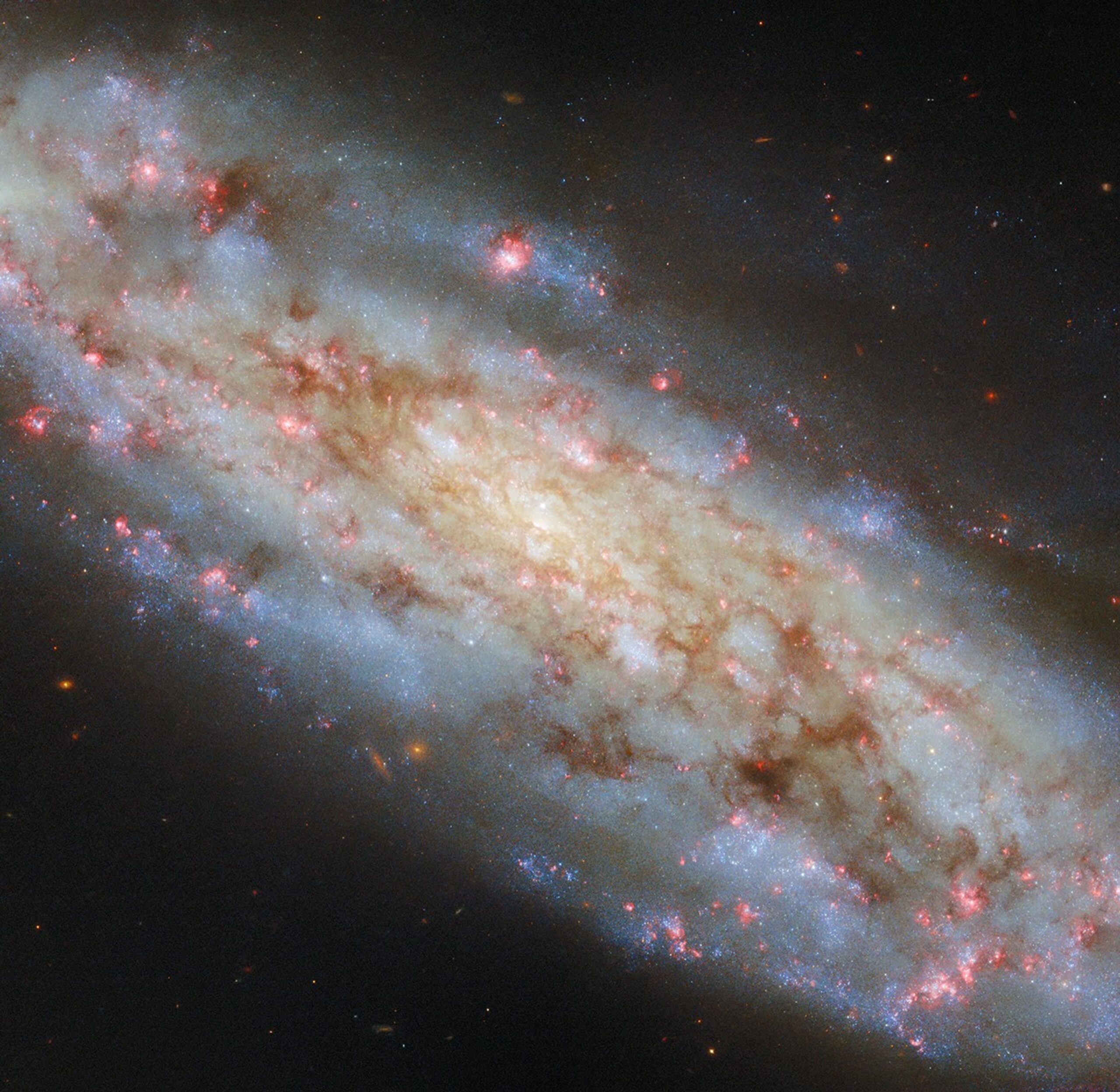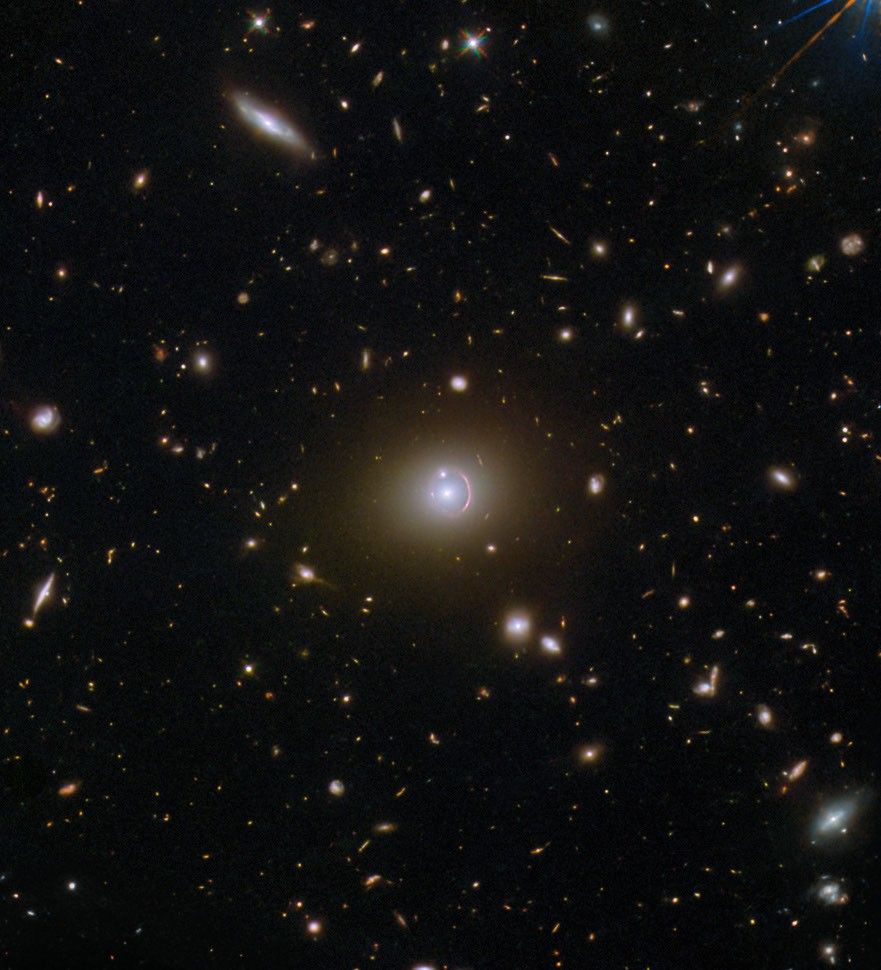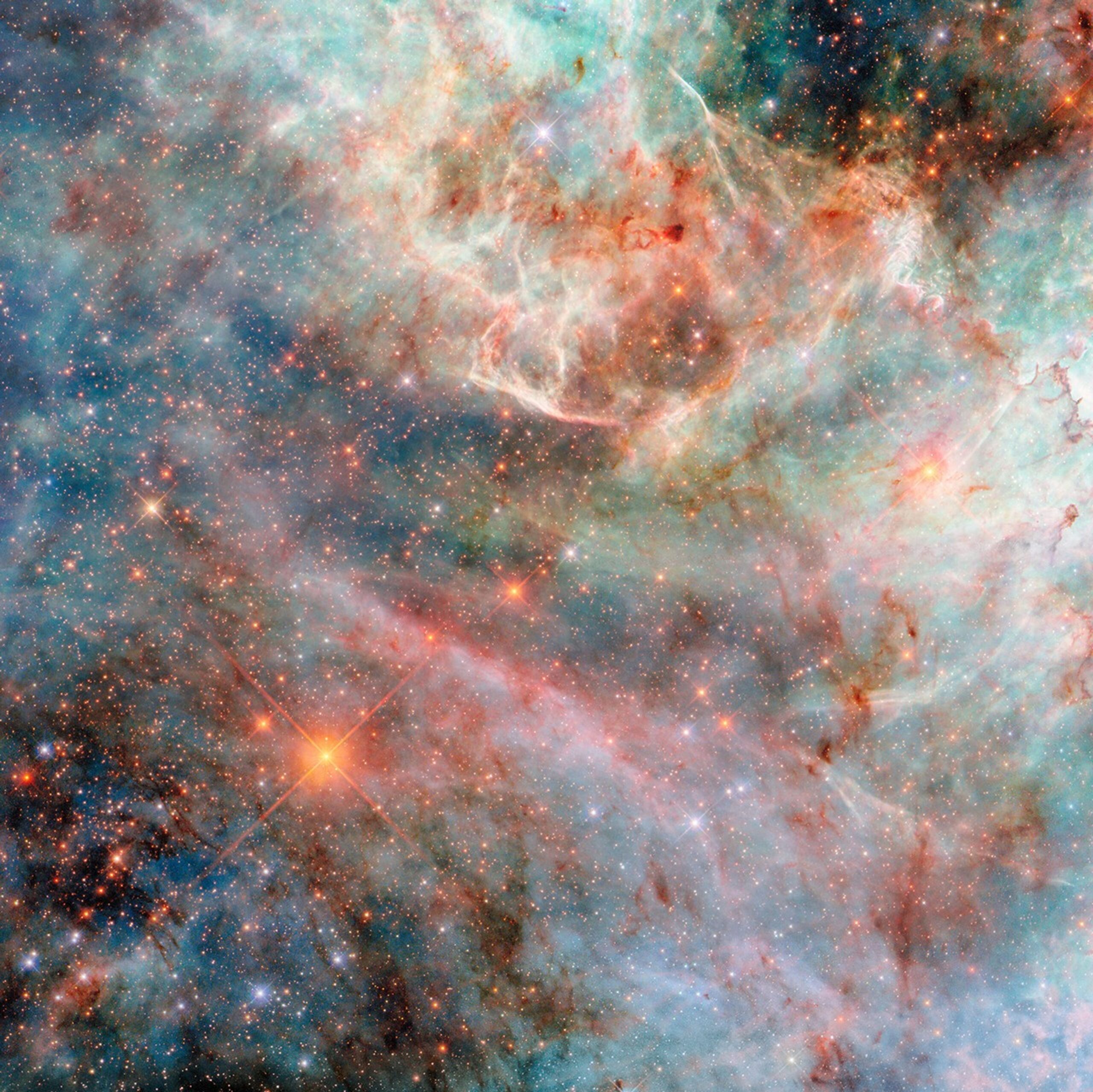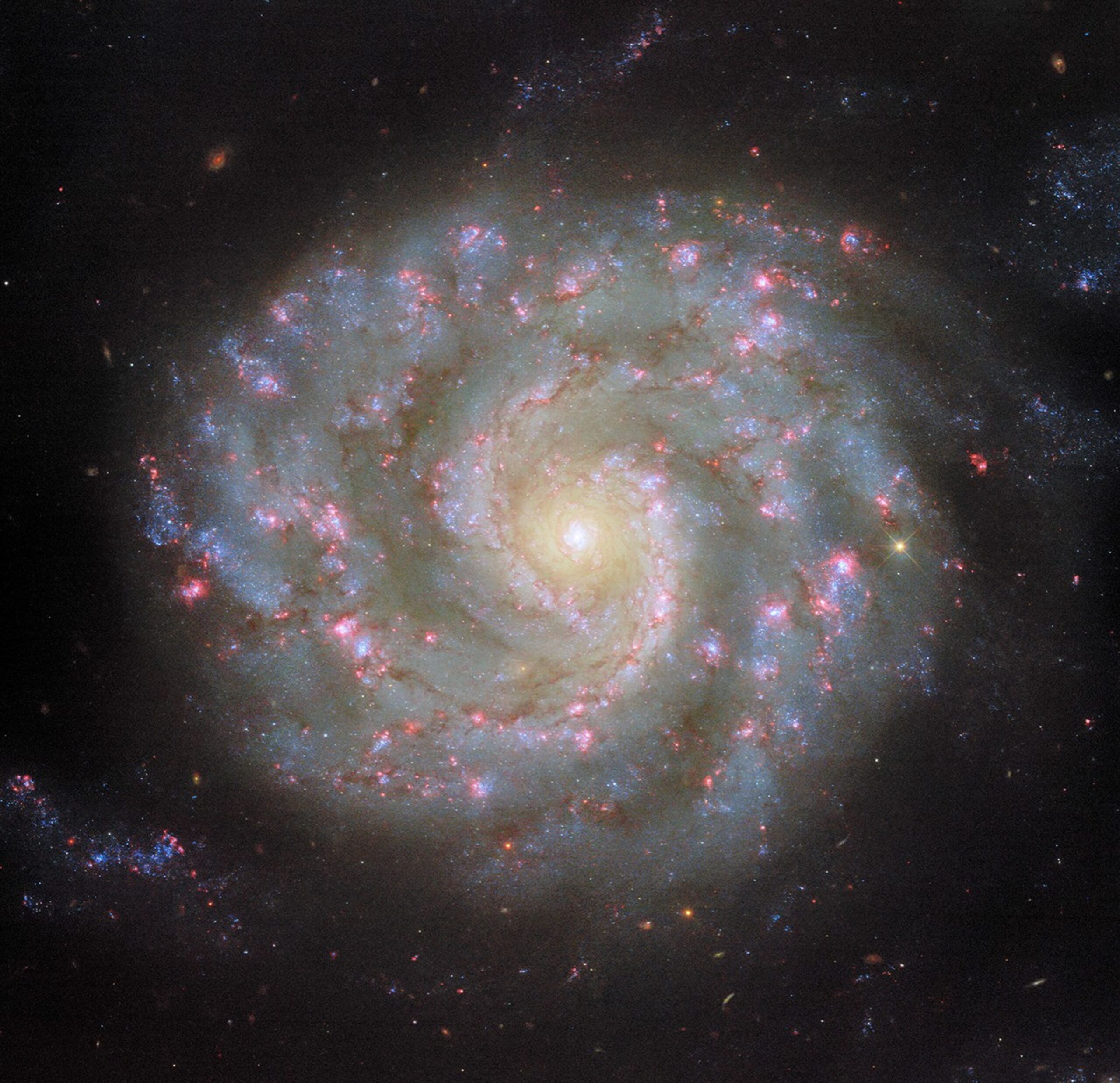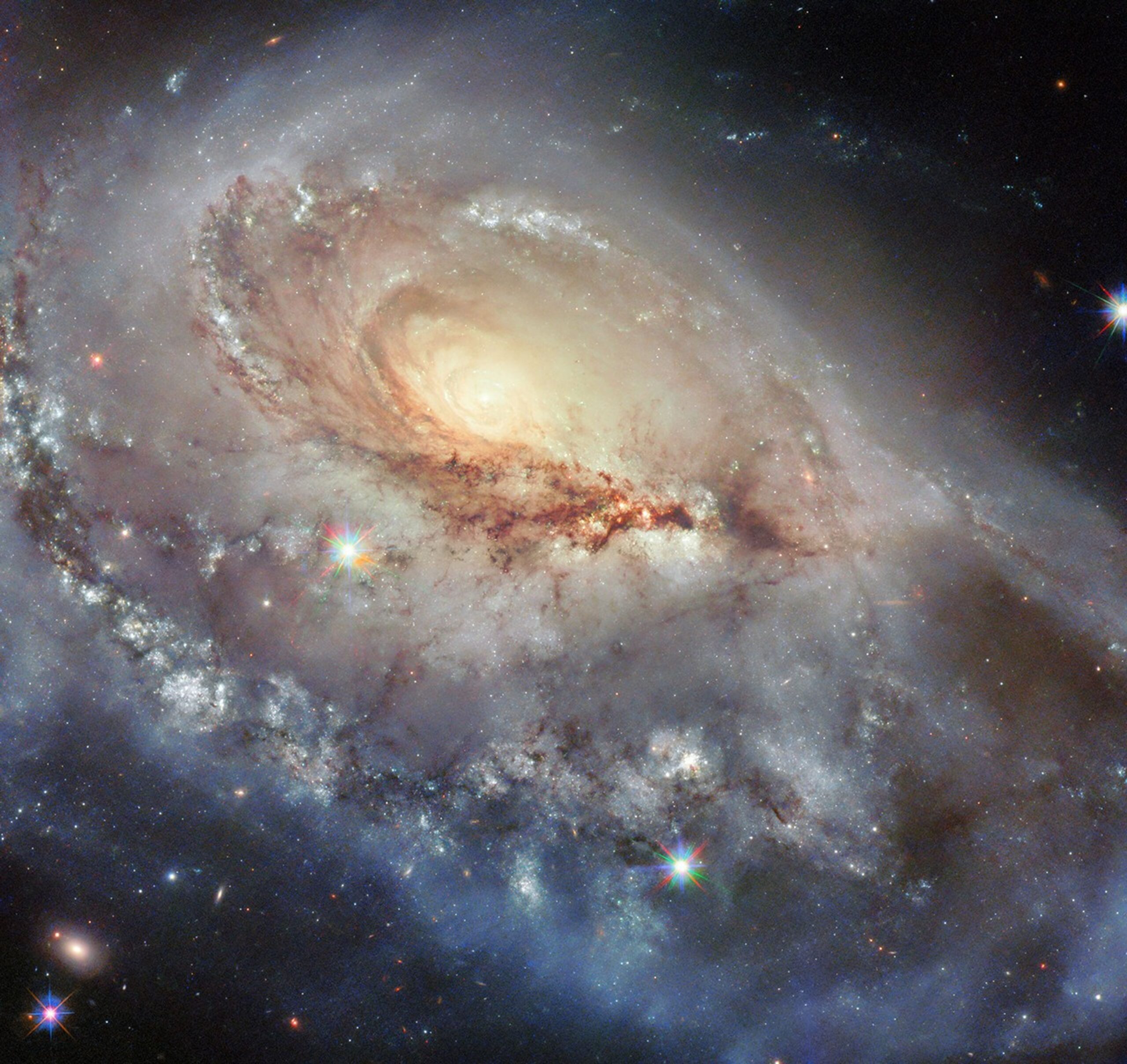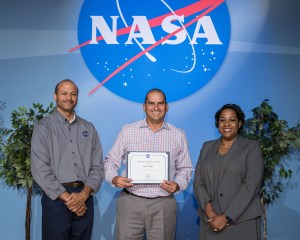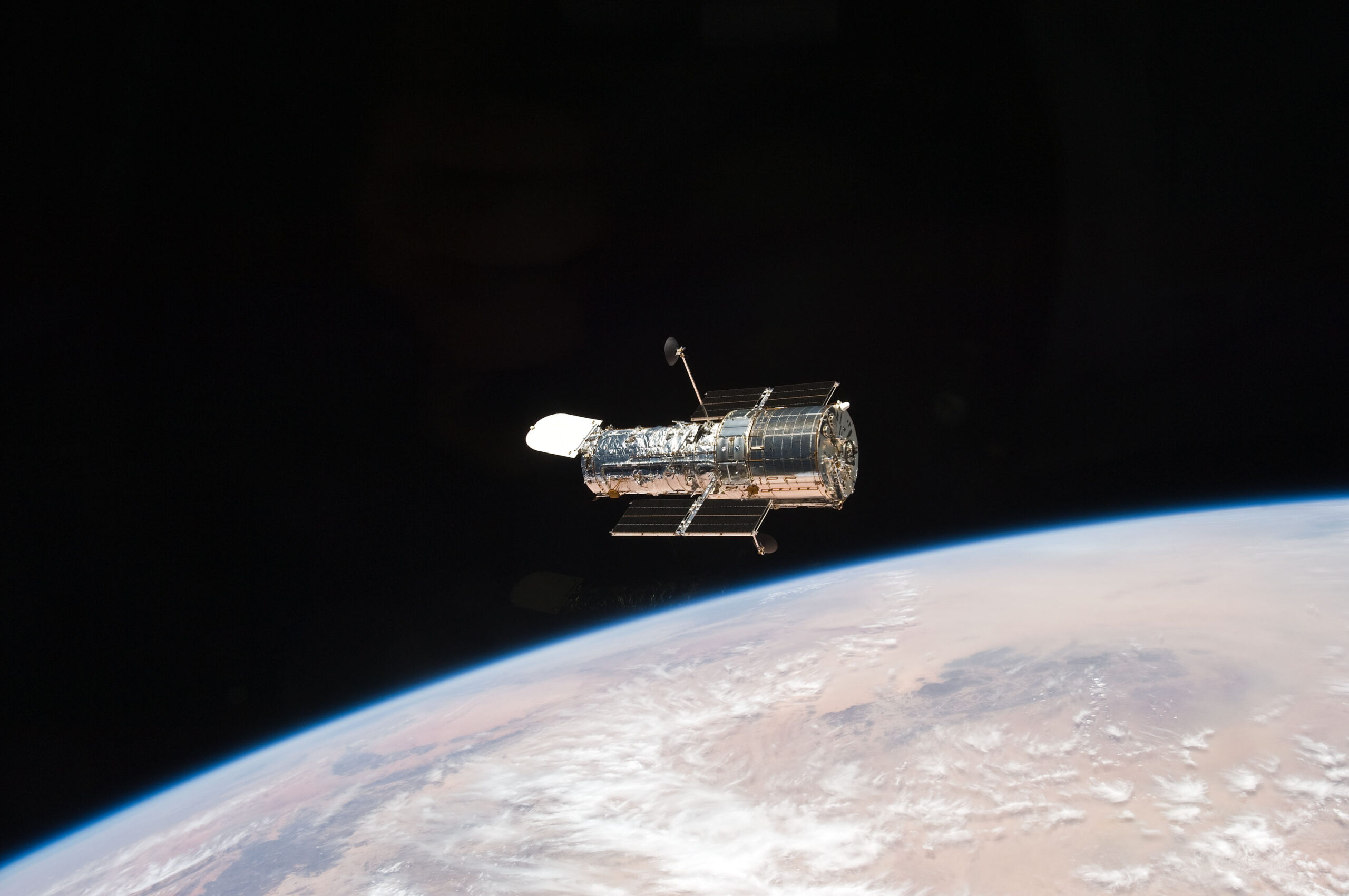Explore Hubble Hubble Home Overview About Hubble The History of Hubble Hubble Timeline Why Have a Telescope in Space? Hubble by the Numbers At the Museum FAQs Impact & Benefits Hubble’s Impact & Benefits Science Impacts Cultural Impact Technology Benefits Impact on Human Spaceflight Astro Community Impacts Science Hubble Science Science Themes Science Highlights Science Behind Discoveries Hubble’s Partners in Science Universe Uncovered Explore the Night Sky Observatory Hubble Observatory Hubble Design Mission Operations Missions to Hubble Hubble vs Webb Team Hubble Team Career Aspirations Hubble Astronauts Multimedia Images Videos…
Read MoreTag: Hubble Space Telescope
Hubble Images Galaxies Near and Far
Explore Hubble Hubble Home Overview About Hubble The History of Hubble Hubble Timeline Why Have a Telescope in Space? Hubble by the Numbers At the Museum FAQs Impact & Benefits Hubble’s Impact & Benefits Science Impacts Cultural Impact Technology Benefits Impact on Human Spaceflight Astro Community Impacts Science Hubble Science Science Themes Science Highlights Science Behind Discoveries Hubble’s Partners in Science Universe Uncovered Explore the Night Sky Observatory Hubble Observatory Hubble Design Mission Operations Missions to Hubble Hubble vs Webb Team Hubble Team Career Aspirations Hubble Astronauts Multimedia Multimedia Images…
Read MoreHubble Captures Cotton Candy Clouds
Explore Hubble Hubble Home Overview About Hubble The History of Hubble Hubble Timeline Why Have a Telescope in Space? Hubble by the Numbers At the Museum FAQs Impact & Benefits Hubble’s Impact & Benefits Science Impacts Cultural Impact Technology Benefits Impact on Human Spaceflight Astro Community Impacts Science Hubble Science Science Themes Science Highlights Science Behind Discoveries Hubble’s Partners in Science Universe Uncovered Explore the Night Sky Observatory Hubble Observatory Hubble Design Mission Operations Missions to Hubble Hubble vs Webb Team Hubble Team Career Aspirations Hubble Astronauts Multimedia Multimedia Images…
Read MoreHubble Comes Face-to-Face with Spiral’s Arms
Explore Hubble Hubble Home Overview About Hubble The History of Hubble Hubble Timeline Why Have a Telescope in Space? Hubble by the Numbers At the Museum FAQs Impact & Benefits Hubble’s Impact & Benefits Science Impacts Cultural Impact Technology Benefits Impact on Human Spaceflight Astro Community Impacts Science Hubble Science Science Themes Science Highlights Science Behind Discoveries Hubble’s Partners in Science Universe Uncovered Explore the Night Sky Observatory Hubble Observatory Hubble Design Mission Operations Missions to Hubble Hubble vs Webb Team Hubble Team Career Aspirations Hubble Astronauts News Hubble News…
Read MoreHubble Images a Peculiar Spiral
Explore Hubble Hubble Home Overview About Hubble The History of Hubble Hubble Timeline Why Have a Telescope in Space? Hubble by the Numbers At the Museum FAQs Impact & Benefits Hubble’s Impact & Benefits Science Impacts Cultural Impact Technology Benefits Impact on Human Spaceflight Astro Community Impacts Science Hubble Science Science Themes Science Highlights Science Behind Discoveries Hubble’s Partners in Science Universe Uncovered Explore the Night Sky Observatory Hubble Observatory Hubble Design Mission Operations Missions to Hubble Hubble vs Webb Team Hubble Team Career Aspirations Hubble Astronauts News Hubble News…
Read MoreHow Are We Made of Star Stuff? We Asked a NASA Expert: Episode 58
2 min read Preparations for Next Moonwalk Simulations Underway (and Underwater) How are we made of star stuff? Well, the important thing to understand about this question is that it’s not an analogy, it’s literally true. The elements in our bodies, the elements that make up our bones, the trees we see outside, the other planets in the solar system, other stars in the galaxy. These were all part of stars that existed well before our Sun and Earth and solar system were even formed. The universe existed for billions…
Read MoreHappy 35th birthday, Hubble Telescope! 10 times the iconic observatory blew astronomers’ minds (photos)
For 35 years, the Hubble Space Telescope has served as humanity’s tireless eye in the sky, capturing breathtaking views of the cosmos and transforming our understanding of the universe. The school-bus-sized observatory launched on April 24, 1990 and overcame early setbacks to become one of the most scientifically productive instruments in history. From its vantage point 320 miles (515 kilometers) above Earth, the telescope has sent home more than 1.6 million observations contributing to over 21,000 scientific papers. The Hubble Telescope‘s legacy lies not just in its iconic visuals, but…
Read MoreAging gracefully: The Hubble Telescope is in ‘excellent technical condition’ on its 35th birthday, its chief scientist says
The Hubble Space Telescope is celebrating its 35th anniversary in space today, but even as a senior citizen in the spacecraft population, it is showing no sign of slowing down. “Hubble is more scientifically productive now than ever before, which is kind of mind-blowing,” Jennifer Wiseman, the Senior Project Scientist for Hubble at NASA’s Goddard Space Flight Center, told Space.com. Launched in 1990 by NASA and operated jointly with the European Space Agency, the Hubble Space Telescope was a dream brought to reality. All of a sudden, scientists could harness…
Read MoreFixing the Hubble Space Telescope: A timeline of NASA’s shuttle servicing missions
The Hubble Space Telescope is a masterwork of engineering and human ingenuity. Hubble is comparable in size and weight to a large school bus, but its contributions to science and astronomy could fill libraries. Not only is Hubble one of Earth’s premium sources for absolutely incredible, out-of-this-world imagery, it is also a testament to human curiosity and determination. The telescope has been in operation for over 30 years, undergone a total of five servicing missions and delivered nearly 250 terabytes of data in contributions to our understanding of the universe.…
Read MoreHubble Captures a Star’s Swan Song
Explore Hubble Hubble Home Overview About Hubble The History of Hubble Hubble Timeline Why Have a Telescope in Space? Hubble by the Numbers At the Museum FAQs Impact & Benefits Hubble’s Impact & Benefits Science Impacts Cultural Impact Technology Benefits Impact on Human Spaceflight Astro Community Impacts Science Hubble Science Science Themes Science Highlights Science Behind Discoveries Hubble’s Partners in Science Universe Uncovered Explore the Night Sky Observatory Hubble Observatory Hubble Design Mission Operations Missions to Hubble Hubble vs Webb Team Hubble Team Career Aspirations Hubble Astronauts News Hubble News…
Read More